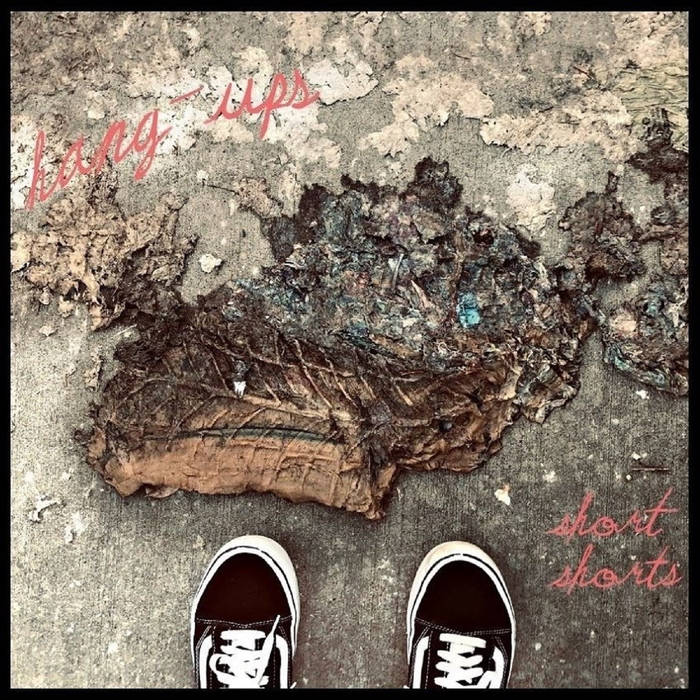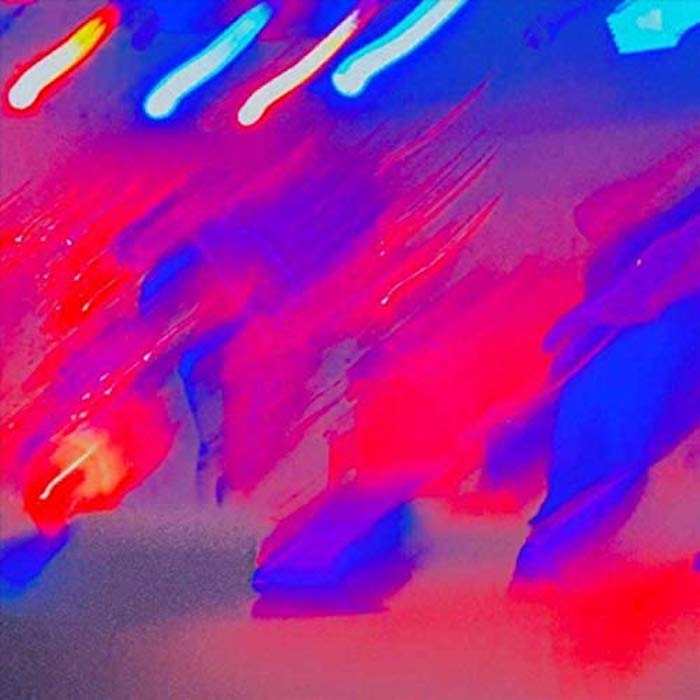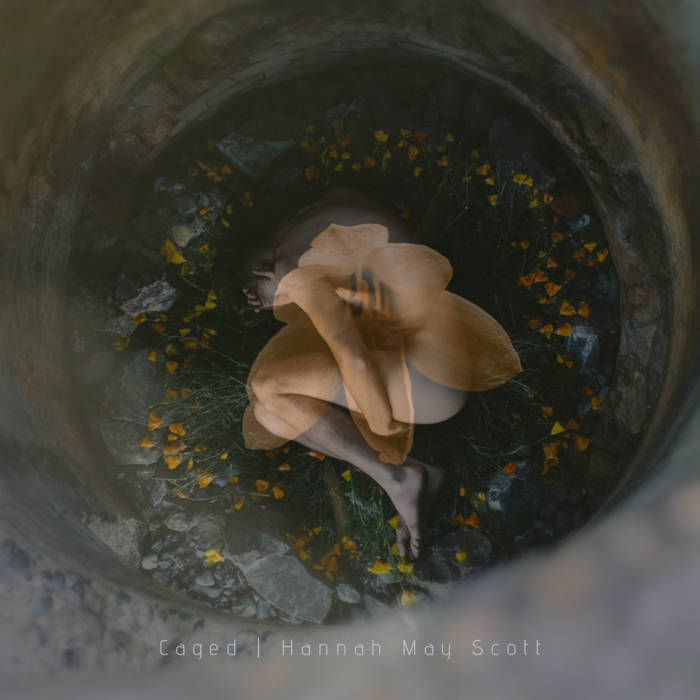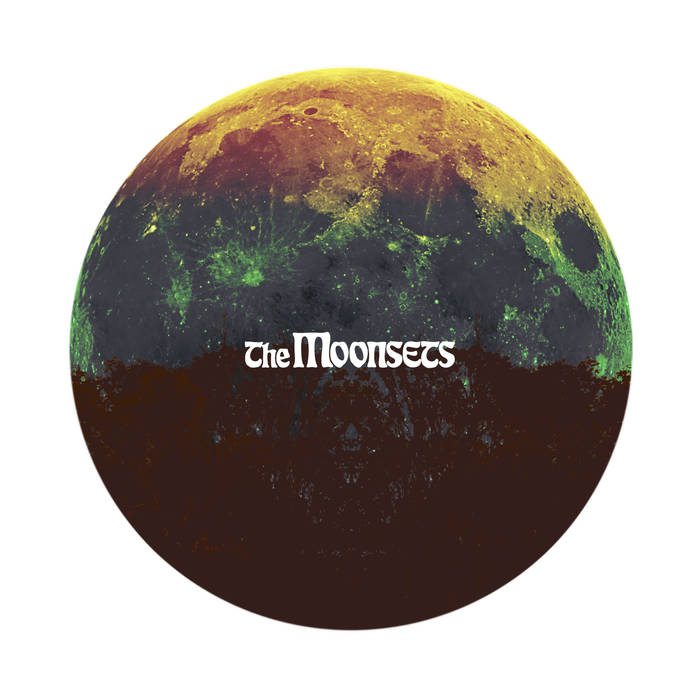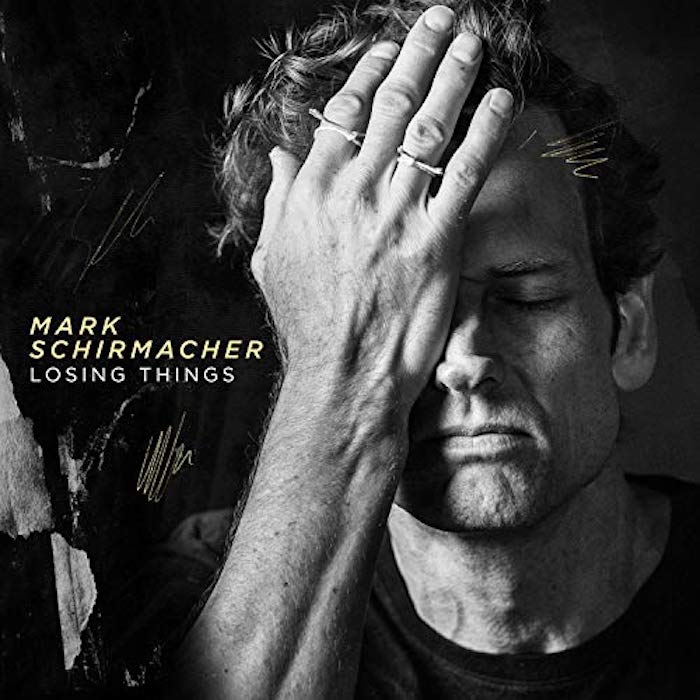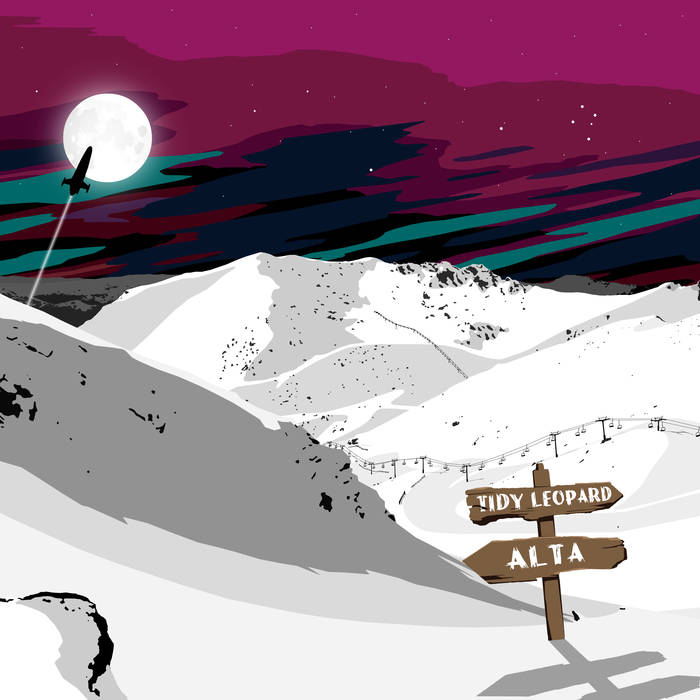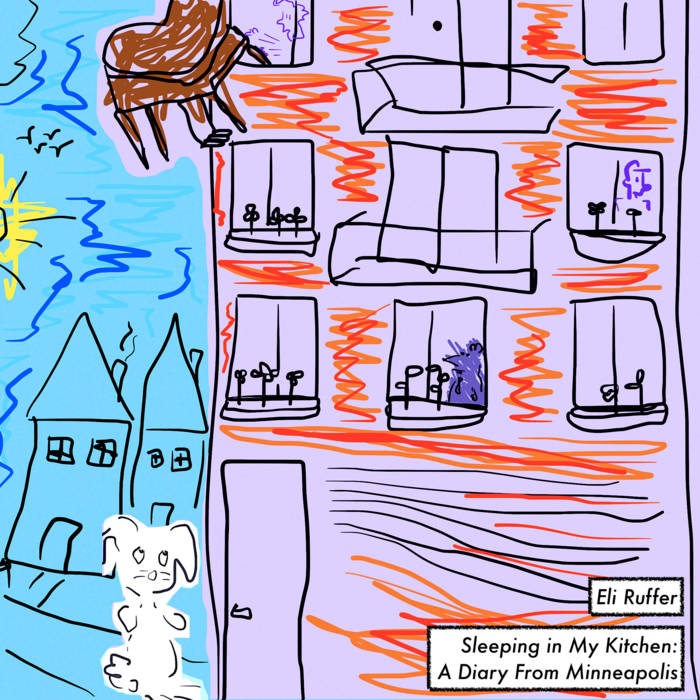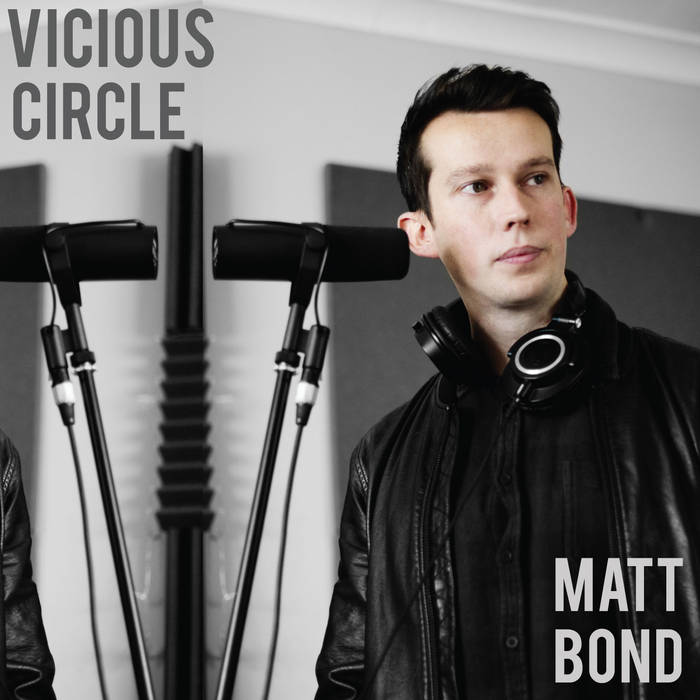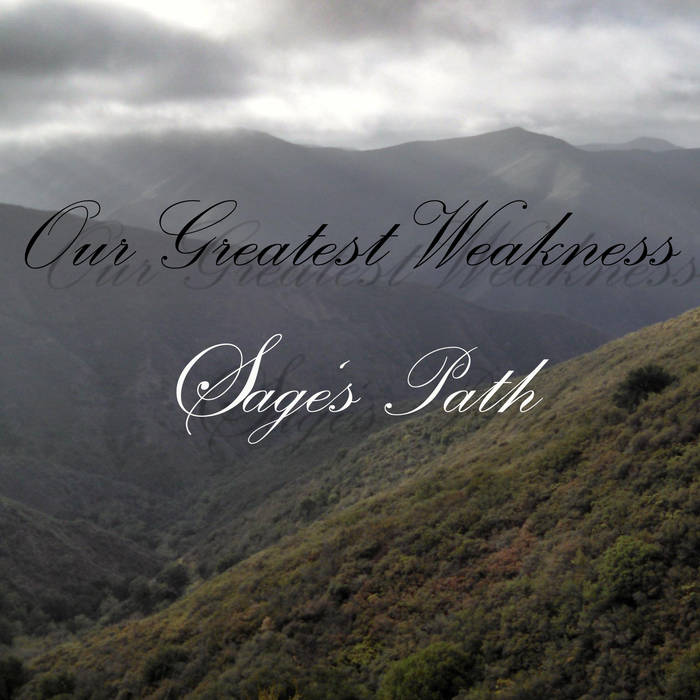|
As fall settles in, I break out my finest collection of blankets perfect for self-loathing and brooding and sure, happy fuzzy cozy time as well I suppose. It's that time of year when I manage to slow myself down. Something about the transition from warm to cold, which happens at breakneck speed here in Chicago makes me get very introspective. So now is a great time for an album like Hang-Ups from Short Shorts. This is an interesting, lo-fi counter culture punk experience. Lots of spiteful shoe gazing going on here. I respect this kind of aesthetic and naturally, can identify with it.
This album comes from the flourishing music scene of Denver, Colorado and while there are some things about this album that are Denver-esque, it has a lot of elsewhere elements. I end up picking up a lot of psych rock out of Denver and I appreciate that I'm getting something a little edgier and off the beaten path. I got the sense this album is meant to rub against the grain and yet it does so at a much slower pace than most. That's kind of revolutionary; no need to scream to agitate; we got enough of that these days. Lots of rough and grungy guitar work on here that preys so easily on my love of this caliber of alt rock. Again that slow pace really lets me take it in and brood with it. When the rhythm does kick up a notch, I have to say I really enjoy the drum work on here from Andrea Davis. I think there was room for a little more experimentation in this department. A big part of what stirs a reaction is the vocals from Charli Rose Alexander. The vocal hits a hard monochromatic vein and for a good part of the album, it was just what the doctor ordered, at other times, not so much. That vocal muscle is strong and on occasion would show that off, but in my opinion, not as much as I would have liked. I think that hard vein is part of the statement and I understand and respect that instinct. Overall there was a very bare bones approach to the music. Hang-Ups was recorded at The Band Cave which is a local studio in Denver. There is a big digital presence here which is all good. It's rare that I say this, but I think I would want to hear this album in a more raw and live sort of state. There's not a lot of layers and so I felt there was a hefty amount of negative space which kept the album from sounding full-bodied. I think the song that was actually very successful in filling that space was "Losing Sleep." This one built a really cool and appropriate miasma around it. Short Shorts has something very interesting here. It's very authentic in its angst and discourse. I felt very justifies in my blanket pile with this one. If you're a blanket brooder like me, you'll feel right at home with Hang-Ups.
0 Comments
In 2016, guitarist Matthew Lal, bassist Anthony Molinelli and drummer Ty Gillis formed the Canadian rock trio Ocean Buddha. In March of the following year they released their first EP Ocean Fucking Buddha. After a yearlong hiatus, the trio began working together on their debut album Into Oblivion. The album’s sound is more aggressive compared to their previous work.
Into Oblivion opens up with “Son of the Mourning.” It blends the style of ska and metal. The intro has thunderous guitar riffs and smashing drums before evolving into a groovy vibe. Yet Lal’s raspy voice keeps the metal tone prevalent the entire way through. The song works for either fan of genres. The following track “In Empty Hands” is a much slower metal song with Lal’s vocals being the highlight. The next few songs are pretty great. “No Horizon” starts off upbeat with fantastic percussion to get the energy going. Same thing for “Evil Machines” - the instrumentation is superb. “Evil Machines” is more of a blues song with its down and dirty sound of squealing guitars, smooth bass and relaxed high hats. Even though the song starts strong, it’s interrupted with lyrics. Had it stayed as an instrumental it would’ve been more memorable. “Again?” and “Not Again!” are back-to-back metal songs. Both are lengthy songs that touch on that revisit the theme of falling into bad habits. Both songs work well at being a part one and part two with “Again?” being slow and “Not Again!” being aggressive with its tone and screaming vocals. The last song is the title track “Into Oblivion.” It’s a short song with a dark element lurking in the background that finishes the album on a solid note. Into Oblivion is a strong return for the Canadian trio Ocean Buddha. However an instrumental track or two could have gone a long way to give listeners a breather leaving a stronger impression to the overall album. Songs like “Son of the Mourning” and “Evil Machines” shows the band has more to offer than just heavy metal. Most tracks are pretty lengthy so you never feel cheated. Take a listen.
Noaa Rienecker is a multi-instrumentalist, composer and vocalist from Inverness, California. After leaving the Berklee College of Music, he spent the last half decade rambling and busking from San Francisco to Serbia with notable and formative stays in the UK, New Orleans, Texas, and Brazil. His rambling-traveling adventures contributed majorly to his writing and playing. Rienecker’s songwriting deals with heartache, addiction and the vicissitudes of wanderlust. Often sardonic, funny and melancholy, he uses a broad range of styles – from straight-up bluegrass, to Paul-Simon flavored pop. Along with original numbers, Noaa’s debut EP Saltwater, also includes his unique treatments of traditional tunes.
Rienecker states that Saltwater was done with virtually no budget. He struggled to stay afloat and healthy in between what he calls a “physically and spiritually brutal” six-week season working at Burning Man event, a trip to the UK to play music and in the midst of that, a breakup with his girlfriend. Madison Bohrer, who records artists under the name Maddog Sounds and who happens to play a mean saxophone, was generous enough to engineer the EP. During his stay in the UK, Rienecker met an incredibly talented young artist named Ivy Langley – she did the recording’s cover art. The EP starts off with the titled “Saltwater” – a traditional sounding, “campy” (as Rienecker put it), bluegrass styled number with some great instrument change ups, just enough to give it a modern twist. Great ending, too! Also playing on “Saltwater” is Casey Holmberg (banjo and vocals) and Noa Laniakea (double bass). Both come from the band Fog Holler. “Cool Colorado” gives off a nice “cool” sound in this interpretive traditional tune – bluesy and folkish packaged in a singer/songwriter style. It kind of reminded me of Leon Redbone in a way, just not with that Redbone signature voice though. Another traditional number is “New Railroad” and if you’re into lots of guitar picking this song is for you! “Right on Time” features a full sound, complete with drums, mandolin and double bass. Reese Bullen, a dear friend of Rienecker’s and the drummer of Sun Hop, plays on this tune. Rienecker channels Neil Young, as his band’s bio points out and I’d have to agree. It reminds me of the style Young had on albums like Harvest Moon. The last song is “Only Blues” a delicate sounding tune with a bouncing rhythm and more great picking style. Rienecker’s superbly sings his heart out on this one. If you enjoy, contemporary Americana moods with folk and bluegrass styles mixed in, I suggest you check out Noaa Rienecker’s fantastic and well produced debut Saltwater.
Become A Fan
Hannah May Scott is a sixteen-year-old musician from Australia who recently released Caged. She actually recorded the vocals when she was fourteen and fifteen. Suffice it to say she doesn't sound her age. She sounds much older than that. She was initially described “as a soul/R&B feel by way of Aretha.” Scott collaborates with her father Tim Scott on these songs.
The album opens with the title track “Caged” which is one of the more explosive and single worthy songs in the batch. There is no doubt her vocals are powerful and soulful against the blaring horns and funky bass. The song is also quite catchy. On the chorus she sings, “Caged / I’m feeling caged.” Up next is “Dancing through the night.” This song is much more lush and soft in general. The song is very relaxing and in fact made me a little sleepy. The lyrics actually reinforce that she also wants to hit the hay. She sings, “Dancing, I’ve been dancing through the night / And I’m so tired / Two AM / And I’m hanging by a thread / My breath comes sharp / And I’m hiding in my bed.” She seems reinvigorated on “Be my own girl” which is still fairly mellow but has more dynamic vocals. Next up is “Lately” which was a surprise. The music here especially on the verse leans towards reggae. It was a welcome surprise. I loved the way the horns sounded on this track. The good times roll with “Invisible” which is one of the more upbeat songs. I could hear some of the Aretha Franklin influence on “What he said.” Last up is “Pray” which is synth heavy and also one of the most catchiest songs on the album. I think there is a good amount of talent here. It’s hard to believe she is so young and has such a commanding voice. I’m looking forward to hearing more from her and there is little doubt in my mind that there will be more to come.
Self-proclaimed folk funksters, The Moonsets (formerly The Flumes) dropped their new self-titled album The Moonsets and it is a journey of eclectic layers, complexity and world music. Kayt Wallace as main vocalist and electric harp player is joined by Andrea Joy Norden on drums and songwriting partner Stephan Beattie on bass and guitar. True to their high vibe lyrics and music, they independently produced and recorded using 100% solar power.
"Firefly" is the opening song that captures an upbeat spirit, worldly lyrics as well as that unique electric harp and guitar fusion. It has a catchy beat that reminds me of the world music curated by Putumayo. We step into a more ethereal and Caribbean sound in "Supersede." Harp, vocals and percussion take over in this second song. It is playful, sensual and slowed way down. "Follow the Dollar" has a more Spanish flamenco vibe. A bit dark, a bit sexy. "When the power you hold is measured in gold, it will slip out your fingers..." A threat, but more like a wise heeded warning. The electric harp and chorus come together in this more latin-inspired chant. The percussion takes flight in "Home." Percussion is the root and rhythm of songs, so it adds another layer of poetry and creative success that they are the featured instrument. We get a little electric harp as treble support, and the vocals almost casting a spell on really defining what home is. The Moonsets merge a lot of indie jazz, experimental and electric harp in "Llokesh" which is a fun story about a llama that loves bananas. The vocals are gritty, the cymbals are present, and the electric harp combines with some drowned out guitar to get into a more psychedelic groove. The last song on the album to round it all out includes what sounds like panpipes, percussion and just a tiny bit of that electric harp. It is a mid-to-up tempo blues infused tune about the overarching and redemptive power of love. Penned by long term collaborator John Goodson (Astronaut Launch Party), it is arranged by and sung as a duet by Wallace and Beattle. Surreal, psychedelic, and worldly this band has a creative flow and eclectic edge similar to the curated music of Putumayo. They have unique and playful lyrics, and fantastic chemistry between all instruments.
Mark Schirmacher is an American singer and musician whose indy-folk songwriting celebrates love, relationships and the complexities of the human heart. Last year we reviewed Bird in Your Tree and he is now back with Losing Things.
The first thing I usually do before listening to the music on an album is try and absorb the album cover. Well, in this case the album cover certainly seems to match the the title. Schirmacher looks as if he is six months late on his mortgage and his partner just left him. I thought this was going to be a much more somber affair than his previous release. The title of the album and cover art felt a little misleading when I listened to the music. This album has plenty of joyful and hopeful moments. There are also soft, intimate moments which mix melancholy and nostalgia but I never got a real feeling of despair that I thought I might be getting on this album. The album starts with “Tomorrow (feat. Laurels String Quartet)” which is a warm song and I loved the orchestral strings. It’s an opening song that’s a bit of a slow burn. There is a mix of emotions and I really liked that Schirmacher did not go overboard with this song where it went full epic with numerous crescendos. It had the potential to do that which I think is actually very predictable. This song is more nuanced. The swells and tension is more reflective of actual emotions with little highs and lows. “Never Gonna Let You Go (that easily tonight)” is a single worthy song and very upbeat and joyful. As I mentioned I was kind of surprised to hear such an upbeat vibe given the title and album art. Up next is “Sleep” which is intimate and warm. I would argue a song like this contains more space than melancholy. That’s really the point of music like this in my opinion. It’s relatable when you recognize the beauty in sadness. As the album progresses, there were a number of highlights. “4 Walls” might be the highlight. It’s at least one of the top two for me. Schirmacher’s vocals sound exceptional on this song. The instrumentation is warm, rich and lush. I was reminded of Simon & Garfunkel. “It's a Dream (feat. Laurels String Quartet)” contains some great string although I totally disagree with him - I love it when my lady goes out on a girls night - time to indulge in video games or have the boys over to have a beer. The production and recording quality is fantastic. This type of music deserves high fidelity so you can hear those string and nuances in the more intimate songs. This is a great release and another one in the win column for Schirmacher. Take a listen.
Tidy Leopard is the solo alias of Perth (Western Australia) based musician, Leo Titley. Leopard has made a name for himself as a drummer for several bands from a variety of genres, including funk, rock, folk and progressive metal. On his album Alta he does it all. The drum work is unsurprisingly exceptional but so are the elements to the song such as the guitar. There is some impressive guitar work that along with the drums felt like the main attraction.
The songs for the most part felt somewhere between prog rock and metal. Take for instance the opener “Emergence” which mixes circular, hypnotic patterns and aggressive bass with an onslaught of drums. It’s a dynamic song and like a lot of other notable prog rock songs has a lot of transitions. It seamlessly flows into “Manipulation.” You can hear traces of a band like Tool on “Divination.” This song is a bit of a slow burn and has a mysterious allure to it. It felt like it was building to something but never explodes like I expected it to. You could make the case that the explosion comes on “Resistance.” “Hesitance” was a highlight to my ears. The groove is smooth as silk. I loved the way the guitar and bass worked together along with more subtle atmospheric elements in the background. “Acceptance” was the centerpiece which comes in a little under eight minutes. This song is dynamic and for the most part high energy. The guitars are distorted, the drum driving and the bass steady while pads float above it all. The pressure and intensity continue to mount with the ferocious and cutting “Dawn.” The album maintains its consistency with the rolling “Homeward” and closes with “Outward” which is an ambient piece free of percussion. This album definitely had a flow to it. It’s the kind of album that benefits from just hitting play and letting it ride. Recommended.
I was reading about Sleeping In My Kitchen: A Diary from Minneapolis by Eli Ruffer and felt like I was reading about my own past. Albeit this reality was over fifteen years ago at this point but the story is almost identical. He states, “I just moved back to Chicago after living in Minneapolis for my first two years out of college. Upon arriving in Chicago, I ventured to my parents' echoey basement to record some songs from the last two years. These songs deal directly with my struggles and triumphs as I transitioned from youth to adulthood - constantly asking myself how to make the most of life.” Although I went back to Crystal Lake, Il and to a different college I went to my mom’s basement to record.
Musically, there are a lot of differences. Sleeping In My Kitchen: A Diary from Minneapolis is a lo-fi recording revolving around guitar and vocals. The performances all seem to be live to my ears. The EP opens with “A Child's First Grief” which is a somber reflection like most of the other songs on the album. Ruffer picks a simple guitar melody and poetically laments for the most part. It’s pretty and melancholy and doesn't really go anywhere past that. Up next is “Laughing Falls.” This song didn’t feel as somber. The song is more folk infused in a traditional way. Some of the transitions have a bluesy/jazz feel to them. “It’s Dinnertime” actually made me laugh. The whole thing about drinking a beer provided some levity to the song. Plus the line about chicken fingers and that’s it’s dinner time not Twitter time was also chuckle worthy. “Where I'm Going” is a little brighter than everything that came before. I liked the vocal melody and late ’60s folk feel to the song. The energy keeps up with “The Wine Song” while “Songs for a Fleeting Night (1 & 2)” is a folk inspired tune that goes from intimate to lively. He closes with the very lo-fi but energy infused “I'm a Handsome Young Man.” I have to admit at some point I’d love to hear more instrumentation and better audio quality recordings. On that note these songs sound solid with a typical lo-fi home recording as well. Time is a lumbering beast and waits for no one. Soon enough Ruffer will be my age and there will be another young man recording music in his parent’s basement. These types of releases are timestamps that the artist himself can look back which should resurrect an idea of who they used to be. We all change over time but a recording captures who we were in that moment. That’s worth something.
Matt Bond is an alternative singer/songwriter from Reading, UK who recently released Vicious Circle. Last year he was featured on a BBC One documentary This Is My Song where he worked alongside Faithless producer Sister Bliss.
The overall topic for these songs is pretty straightforward. Bond explains, “vicious Circle is a four-song EP that honestly reflects the troubles I've faced in my life as well as describing a sinking and helpless feeling at the state of the world we live in.” It’s crazy how many artists I read who say something along these lies. What’s even more crazy if you look at the evidence such as a book like Enlightenment Now by Steven Pinker things are the best they’ve been globally in history and not by a small amount. I blame some of this on the media that tends to only report the grim, bad and ugly. The EP starts with “Put On A Smile” which address this issue. He sings about possible bombs blowing us up, and the rich getting richer and more. It’s the kind of things I remember worrying about in college which this generation still seems to worry about. The best part about the song is how joyful and fun it is. In fact it might be my favorite tune on the EP. “Part Of Me” seems to be more about personal struggle. This song is a pretty straightforward but contemporary sounding rock song. The guitar is distorted and bright and the song unfolds dynamically with a catchy verse and an explosive chorus. “Rule The Waves” is one of the highlights. The style is a little more ’90s alternative mixed with a tinge of ’60s folk, It’s a catchy song that really builds into a chorus that reminded me of Dropkick Murphys. “Mouth Like A Cage” is perhaps the most single worthy song. It felt commercially viable to me and like something I would hear on the radio. I thought all of these songs were well done. The lyrics, vocal delivery, songwriting and more came together for an immersive experience. Take a listen.
Making music can be a grind. The countless hours I have worked on music in my lifetime is something I don’t even want to think about. It’s also quite frustrating showing it to your friends and they text you something like “pretty good man.” You can’t really blame them but that’s all they have to say. For Sage’s Path which is a solo effort he stated his DAW clocked him in at 3,370 hours across 1700 sessions in the past 1900 days. That’s a lot of work for his album Our Greatest Weakness.
His music you might call experimental metal. It’s not straight metal. There are orchestral parts, subdued breakdowns and more which deviate from more straightforward metal. His vocals are all over the place stylistically. He screams. He does spoken word and more but whatever he attempts is covered in some kind of dramatic affectation. I really couldn’t tell what his natural voice was because he changes his tone and delivery quite often. It’s kind of like he is playing a bunch of different characters in a play. A good amount of time he sounds pissed off like a disgruntled citizen whose luck hasn’t gone the right way for a long time. I have to admit the hyperbolic vocal delivery was sometimes hard for me to connect with. When I was a younger man in my twenties it was easier for me to deal with the affectation of artists like Trent Reznor or Marilyn Manson but now that I’m way past my twenties I find it harder to indulge in such dramatic theatrics - I blame my age. The songs have this dead serious quality to them. It sort of reminded me of a band like Tool. It’s a little bit like that with more nihilism. He pours out lines such as, “I'm done, I've had it—I'll see my ego to the goddamn door” and “All things are temporary / Moments pass as they carry on deeper into the abyss, the unfathomably infinite.” These type of lines on paper can feel like the indignant thoughts of a man who is so sick and tired of being alive he wants to end it all or a Buddhist who finally reaches Nirvana. The delivery is such that the former is more fitting. My favorite aspect of this album was the diversity in the structure and his willingness to attempt different styles. There was a lot of unpredictably on the songs and that’s definitely something I can appreciate. I think this album will appeal to fans of metal as well as people who might be looking for a new angle to the genre. Additionally, if you are sort of pissed off and need a cathartic release this might be a good place to start as well. |
Critique/insightWe are dedicated to informing the public about the different types of independent music that is available for your listening pleasure as well as giving the artist a professional critique from a seasoned music geek. We critique a wide variety of niche genres like experimental, IDM, electronic, ambient, shoegaze and much more.
Are you one of our faithful visitors who enjoys our website? Like us on Facebook
Archives
July 2024
|

